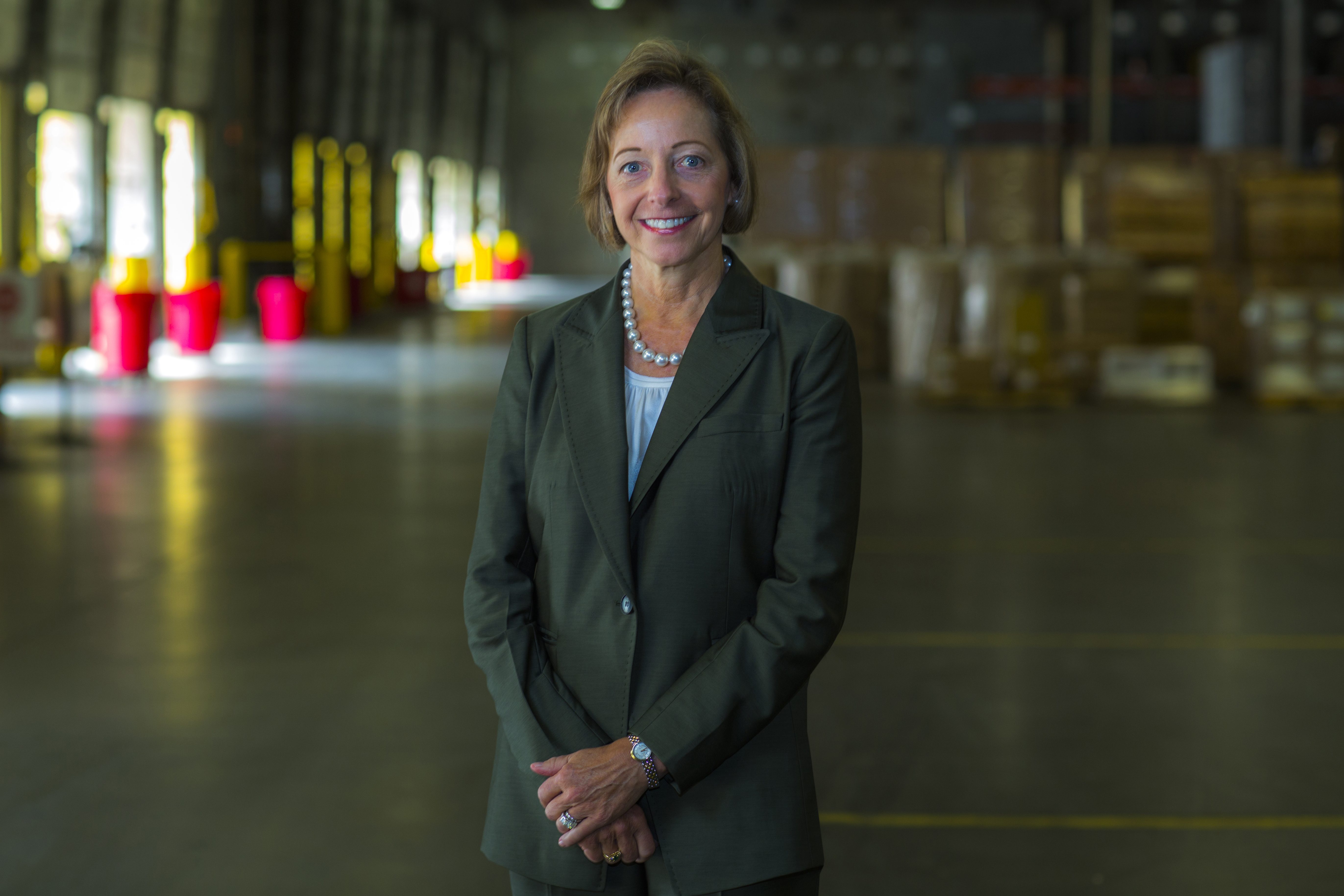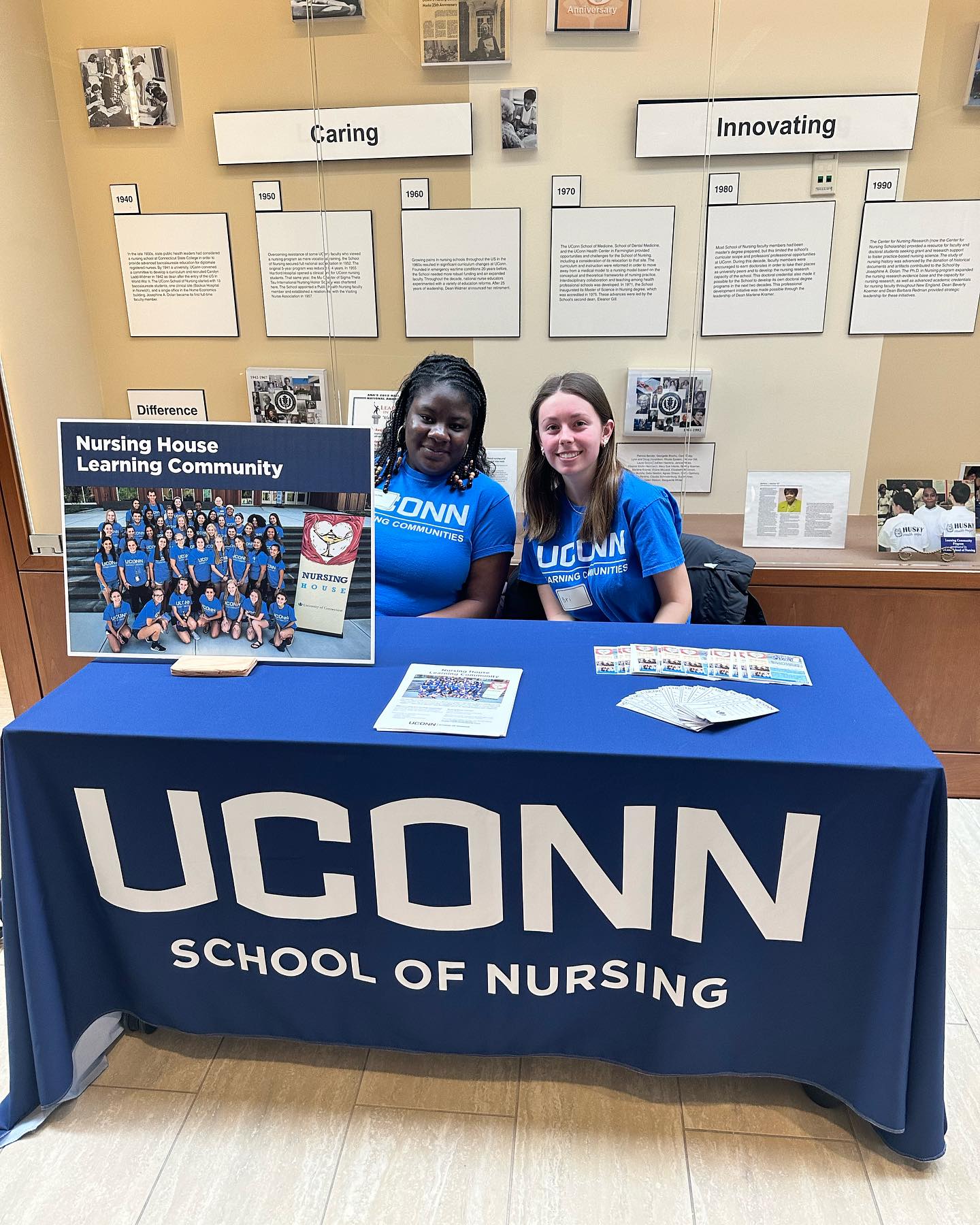Alumna Mary Laschinger is one of only 24 women CEOs of Fortune 500 companies. To be clear: That is 24 out of 500. She serves as chairman of the board and CEO of Veritiv Corp, an Atlanta-based business-to-business corporation that offers business solutions including packaging, facility solutions, logistics, paper products and more. Laschinger earned her Executive MBA at UConn in 1992 and was inducted into the School of Business Hall of Fame in March. Below she shares her perspective on the challenges she encountered and the mindset to overcome them to become one of the most successful women in business today.
Q: Were there any factors in your early life that equipped you for the challenges of being a CEO?
A: Certainly, my work ethic came from growing up in a large family on a dairy farm in rural Wisconsin. Every family member – both boys and girls – worked hard to contribute, and we were each expected to work on the farm. I believe that environment helped build my character and self-confidence, which led to my courage to take risks.
Early on, I was never satisfied with the status quo and was constantly striving for change and improvement. I knew I wanted to do something other than farming, and realized that I would have to create those opportunities for myself. That drive and motivation still serves me well today.
Q: Tell me about one way you have been able to distinguish yourself in your career that contributed to your success.
A: I believe there are a few characteristics that have led to my success. To this day, I never accept the status quo. That, combined with strategic thinking skills and the ability to execute a strategy, have helped me build the courage and confidence required to drive change. Most importantly, through my ability to assess and develop people, I have recognized that my role as a leader is not about me, but about everyone else.’
Q: What advice do you offer women or men who are striving for an executive level position?
A: First, it is important to find your passion. Regardless of what you choose to do for a living, find what it is that excites you about work every day. If you identify this, you will be great at it. Continue to learn and push yourself outside of your comfort zone. Take risks with your career choices; take roles that challenge you and broaden your perspective. For women especially, don’t make it about what you are, but about what you can do. That self-confidence is what makes for a strong leader.
Q: What was your biggest career challenge and how did you overcome it?
A: My greatest career challenge came when I was the president of a multi-billion dollar manufacturing business with operations in eight countries in Europe, Russia, the Middle East, and North Africa. I moved to Europe with very little notice to take on an underperforming, complex operation with very challenging business conditions. I had no support system and experienced significant culture shock. I was working in environments where females were not treated with respect, in general, in the workplace, and certainly female leaders were almost unheard of.
The only thing I could do was draw on my inner strength and self-confidence. I relied on my business- and people- instincts and built a strong team around me. I also stood my ground and did not accept the status quo when dealing with very difficult people in environments that were sometimes very hostile.
While this opportunity was my biggest career challenge, it was also my most beneficial learning experience. It certainly helped shape the leader I am today, and reinforces my strong belief in the importance of taking career risks to continue growing and learning.
Q: In 2018, you were one of only 24 Fortune 500 female CEOs. Why do think women are so under-represented, and do you anticipate any substantial gains in the near future?
A: There are several factors affecting women in business. Women often have to make difficult choices related to work-life balance, and sometimes they need greater flexibility. Historically this has disadvantaged them in the workplace. They may be perceived as not as committed, or less driven and ambitious than their male counterparts.
For many women, that affects their self-confidence and they may not take greater risks with their careers and go after roles that will help them learn and grow. I truly hope that one day soon, we won’t be talking about a female Fortune 500 CEO simply because she is a woman, but because of the positive impact she is having on people and the organization.
Q: If your career had taken a completely different path, what industry would you be in today and why?
A: I have a passion for my job so I cannot really imagine what else I would have wanted to do. I do know for sure that it would not be farming! I interpret this question not so much about being in a different industry, but more broadly about what would I be doing if I had not made it to the C-suite. Regardless of industry, I still think I would be leading a business – most likely a smaller business – and a team of people trying to make a difference.



